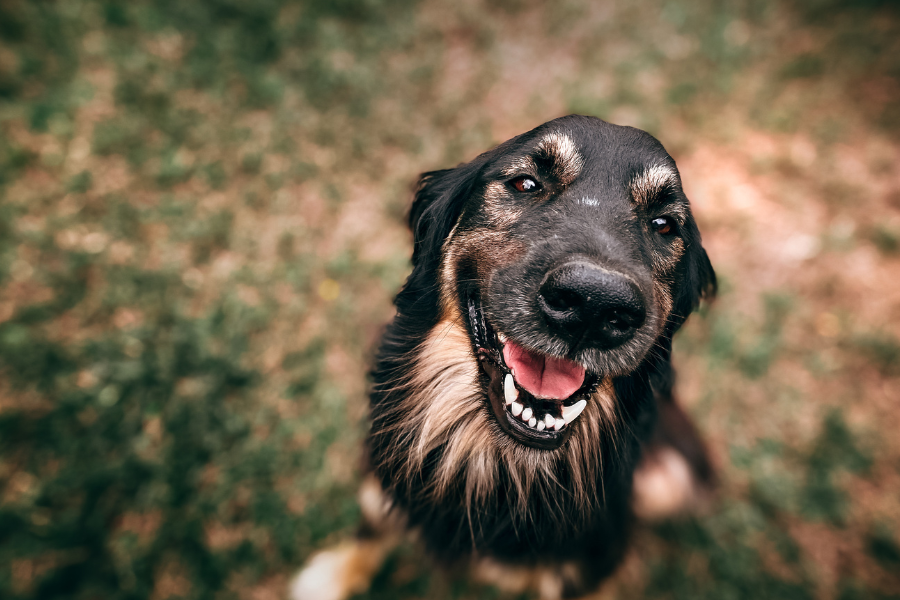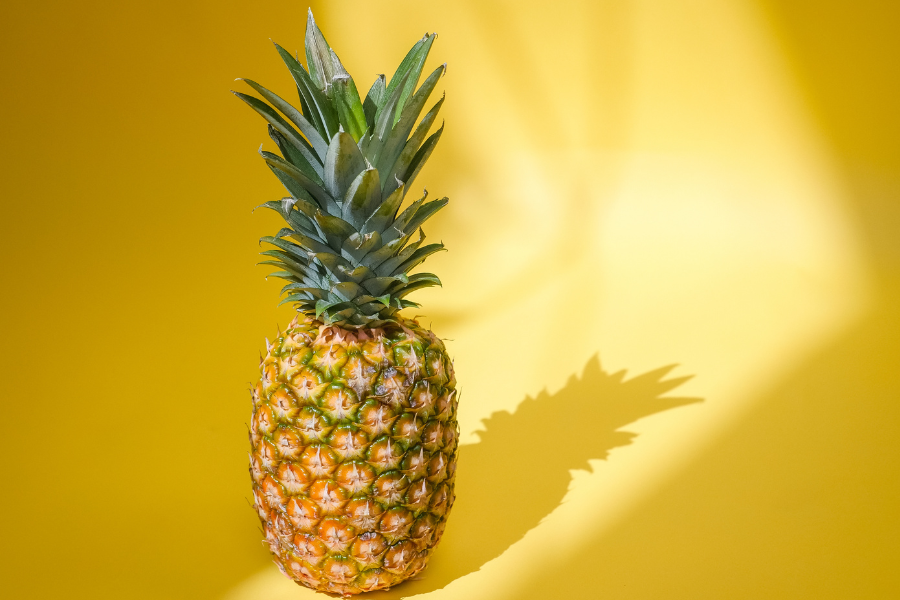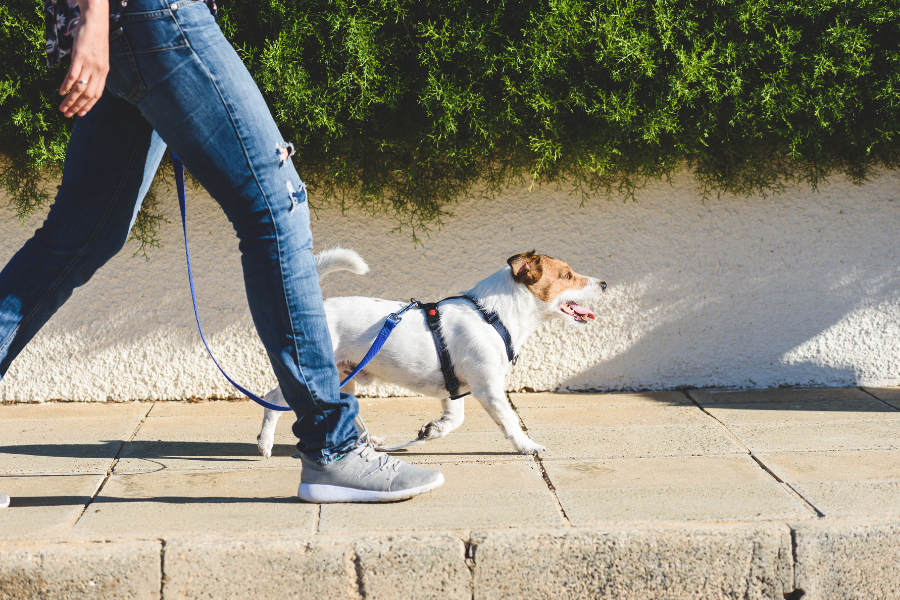Most of us who own a dog have seen or heard them. The sound similar to a beatbox (but not a steady beat). Yes, we are talking about dog hiccups. This common experience (or symptom), in most cases, should be nothing to stress about – i.e. it’s almost as common as your dog sniffing another dog’s butt in the park, or chasing down a fluffy-tailed squirrel!
Key Takeaways
- Totally Normal: First off, it's crucial to remember that hiccups in dogs are totally normal, especially in puppies. It's just them growing or eating a bit too fast.
- Water Trick: Offering your dog water can sometimes stop the hiccups. It helps reset their diaphragm and gets those hiccups to take a hike.
- Slow it Down: If your pup is a speed eater, consider using a slow feeder bowl. Eating at a snail's pace can help prevent those air gulps that lead to hiccups.
- Tummy Time: Gentle belly rubs or a calming massage might just do the trick, relaxing your dog and easing their hiccups away.
- Play Distraction: Sometimes, a good play session is all it takes to forget about hiccups. Engage your dog in a low-key activity to help them relax.
- When to Worry: Keep in mind, if hiccups are too frequent or last too long, it might be a good idea to chat with your vet. Better safe than sorry, right?
What's Up with the Hiccups?
First off, why do dogs even get hiccups? Well, much like us, when our pups gulp down their food like it's about to go out of style or get overly excited (because, you know, you just came home, and it's the BEST. THING. EVER.), they can swallow air, which might lead to those adorable yet somewhat concerning hiccups.
Do Puppies Get Hiccups More Often?
What about baby dogs (a.k.a. puppies)? Are they more prone to getting hiccups than adult dogs? And if so, why? The short answer is yes, puppies are definitely more likely to catch a case of the hiccups than adult dogs. And the reason why is pretty simple. Because puppies are often more rambunctious, and chaotically-energetic than adult dogs, they gulp air more frequently too, especially when they eat or drink too quickly – and anyone who has had a puppy can attest to the fact that puppies almost always eat or drink too quickly!
Remember the first time you played fetch with them, or they spotted their reflection? Excitement overload equals hiccup central. Plus, they're still growing, and just like human babies, this developmental stage makes them more prone to hiccups. But don't worry, most puppies outgrow the hiccup marathons as they move into doggie adulthood. Just another quirky phase in their adorable journey of growing up!
What Do Vets Say About Dog Hiccups?
So, what do the pros (the veterinarians) have to say about all of this? For the most part, the consensus among the dog doctors of the world is in line with the information we are sharing in this blog, that hiccups are a common, and natural occurrence in dogs, particularly among the enthusiastic eaters or drinkers, and, of course, puppies.
However, vets also remind us to keep an eye out for any changes. If your dog's hiccups are accompanied by other symptoms like discomfort, lethargy, or they're just not acting like their usual tail-wagging selves, it's definitely time to give them a call. Just like us, every dog is unique, and while hiccups are usually no biggie, it's always better to err on the side of caution and check with the experts if something feels off. Remember, no one knows your furry friend better than you do, so trust your gut and reach out to your vet if you're concerned. They're there to help you make sure your canine companion stays as happy and healthy as possible!
The hic-cute Solutions
1. Water Works Wonders
Encouraging your dog to drink water can help. It’s like hitting the reset button on their diaphragm. Just make sure it's a chill sipping session, not a gulp marathon, to avoid adding more air to the party.
2. Keep Calm and Cuddle On
Sometimes, all it takes is a bit of relaxation. Give your pup a gentle rub or a soothing cuddle to help them chill out. Stress can trigger hiccups, so transforming into a zen master could just be the magic touch.
3. Slow and Steady Wins the Food Race
If your dog inhales their meals faster than you can say "Sit!", consider investing in a slow feeder bowl. These nifty gadgets encourage slower eating, which can help reduce the air intake and, consequently, the hiccup fiesta.
4. Exercise - But Make It Light
A gentle stroll or a calm play session can help too. Movement encourages natural breathing and might assist in resetting their diaphragm’s rhythm. Just don’t turn it into a high-intensity workout, or you’ll be dealing with more than just hiccups.
5. The Power of Distraction
Sometimes, a good old distraction technique can work wonders. Engage your pup in a low-key activity or offer them a toy. If they forget about the hiccups, sometimes the hiccups forget about them too!
When to Wag Your Tail to the Vet
While hiccups in dogs are usually as normal as them turning in circles before settling down, there are times when a vet visit is warranted. If those hiccups seem to be hanging around longer than a bad smell or are accompanied by coughing, wheezing, or shortness of breath, it might be time to check in with the doc. Also, if your dog seems distressed or in pain during their hiccup episode, it’s better to be safe and get them checked out.
Keeping the Beatboxing at Bay
Alright, folks – now that we’ve gone through the hic-cute solutions, how about we make sure those impromptu beatboxing sessions become a rare spectacle? Here are some handy tips to keep your dog’s hiccups in check:
- Chill on the Chomps: Encourage your dog to take it easy during meal times. No rush, no fuss. Slow feeder bowls aren’t just trendy; they’re a game changer for gulpers.
- Hydration Station: Keep fresh water available at all times. It’s essential for overall health and can help mitigate hiccup-inducing air swallowing.
- Routine is King (or Queen): Stick to a regular feeding schedule. Consistency is key to preventing a whole host of tummy troubles, including those pesky hiccups.
- Stress Less: Give your dog a peaceful eating environment, away from the hustle and bustle. A calm dog is less likely to gulp their food down along with a bunch of air.
- Watch the Play Timing: Everyone loves a good game of fetch, but right after meals? Maybe not the best time. Wait a bit after eating before engaging in vigorous play.
Remember, our four-legged friends look to us for guidance – and that includes during meal times. With a bit of patience and practice, we can help minimize those unexpected hiccup concerts. Plus, it’s another way to show our dogs just how much we love and care for them. Happy feeding!
Wrap Up
In the grand scheme of things, dog hiccups are more often a source of amusement (and adorable videos) than concern. However, knowing how to handle them can make you feel more like a superhero in your dog's eyes. And remember, while hiccups can be a quirky part of dog life, always keeping an eye out for anything out of the ordinary is key to ensuring your furry friend stays happy and healthy.
Got any funny hiccup stories or tips of your own? Feel free to share them below. After all, we’re all in this dog-loving adventure together, navigating the ups, downs, and yes, even the hiccups, one paw at a time.
FAQs on Dog Hiccups
Q: Should I be worried if my dog is hiccuping?
A: Most of the time, dog hiccups are totally normal and nothing to worry about. They're just a cute quirk of our furry friends. However, if your dog's hiccups persist for hours, or if they're showing signs of distress, discomfort, or any other symptoms like coughing or shortness of breath, it might be time to consult your vet.
Q: What can be mistaken for hiccups in dogs?
A: Sometimes, what looks like hiccups could actually be reverse sneezing or spasms due to other issues. Reverse sneezing is a rapid inhalation that can sound like a hiccup or sneeze and is usually caused by irritation of the throat, sinuses, or nasal passages. If the "hiccups" seem different than usual or are accompanied by other signs of distress, a vet check is a good idea.
Q: What is hiccupping a symptom of?
A: As mentioned earlier, the most common cause of dog hiccups is a dog swallowing air when they are eating or drinking. It is also important to remember, however, that if hiccups become chronic, occur for an extended period of time, or occur in conjunction with other symptoms (like difficulty breathing, coughing, or fatigue), it could be a sign of other issues, and you should call your vet immediately.
Remember, hiccups are usually nothing to worry about, but it's always better to err on the side of caution. Keeping an eye on your dog and knowing when to seek professional advice is key to keeping them healthy and happy!
References
1) Nakazawa Y, Ohshima T, Fujita M, Fujiwara-Igarashi A. Retrospective study of 1050 dogs with respiratory symptoms in Japan (2005-2020). Vet Med Sci. 2023 Mar;9(2):638-644. doi: 10.1002/vms3.983. Epub 2022 Oct 17. PMID: 36253879; PMCID: PMC10029908.



